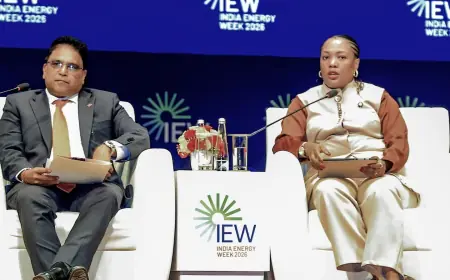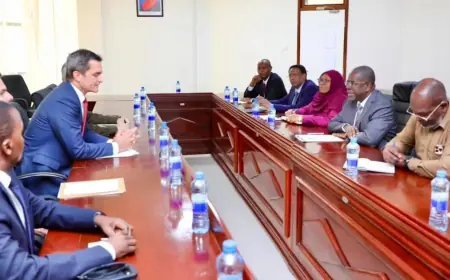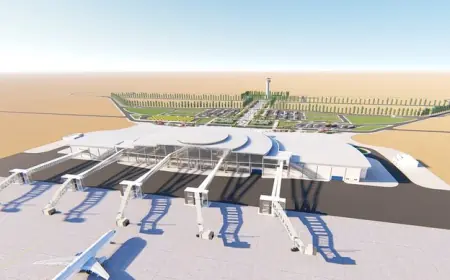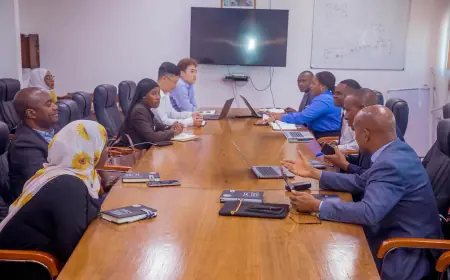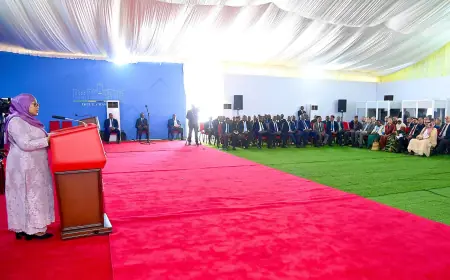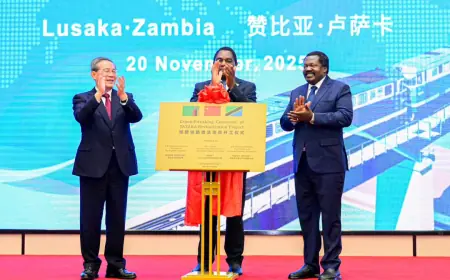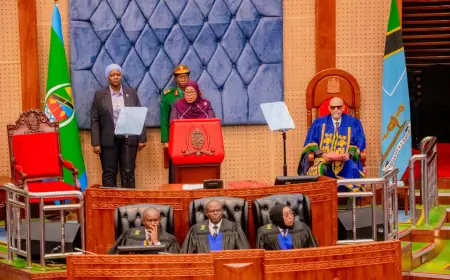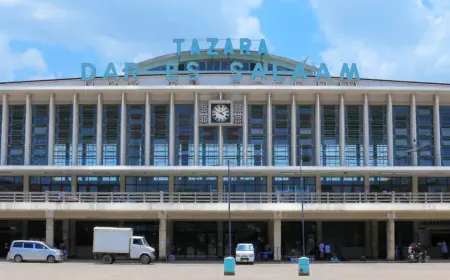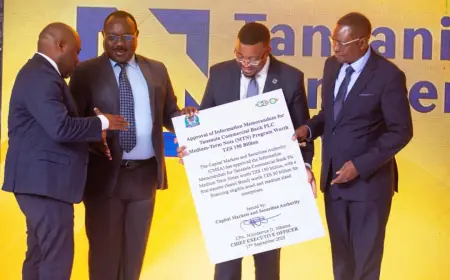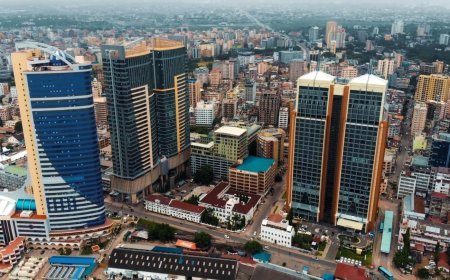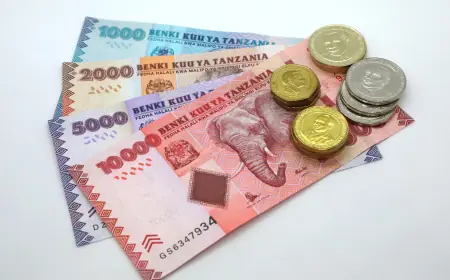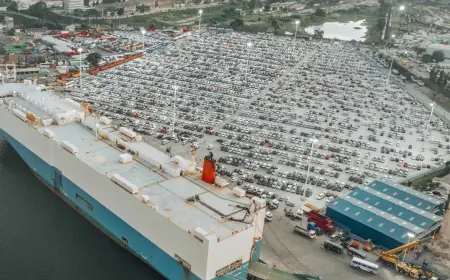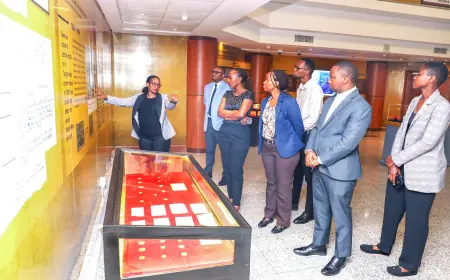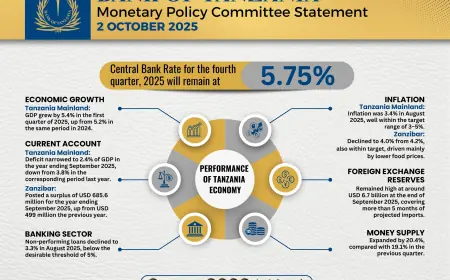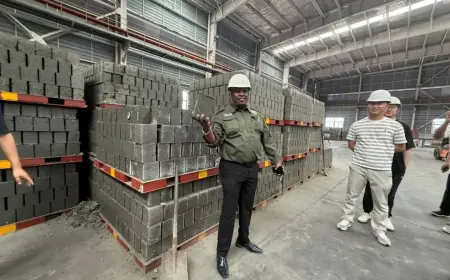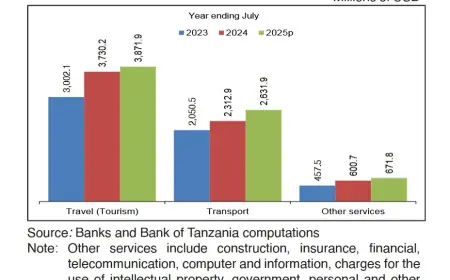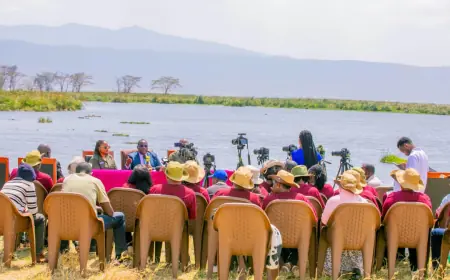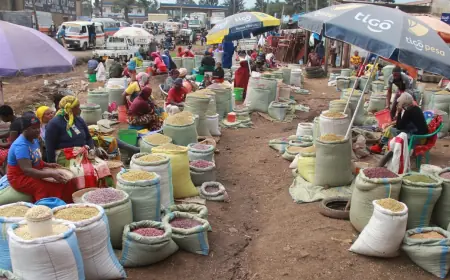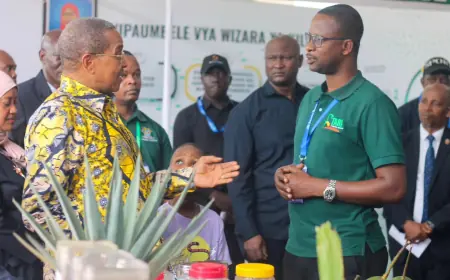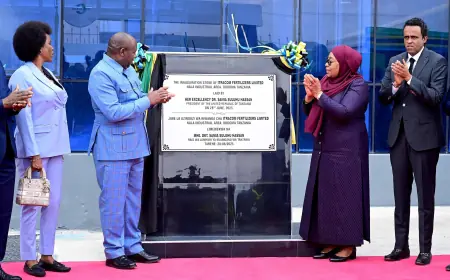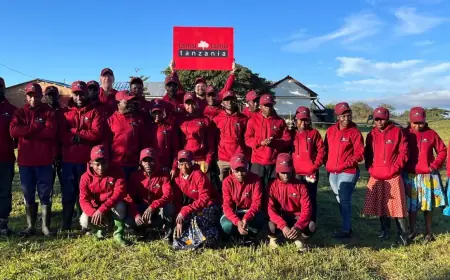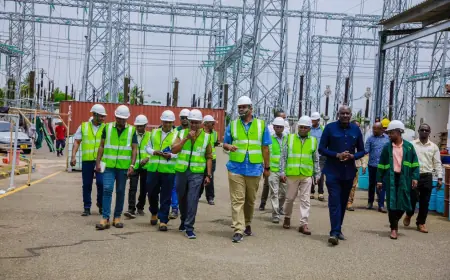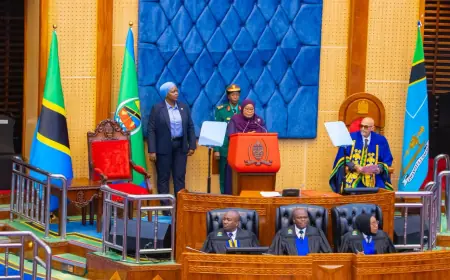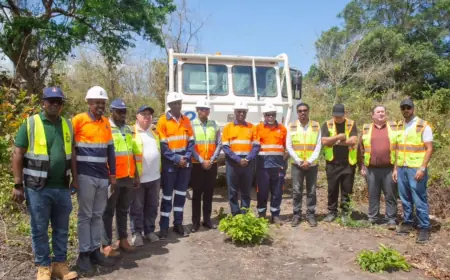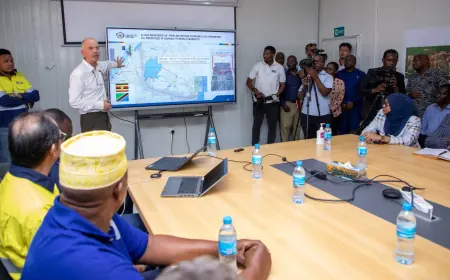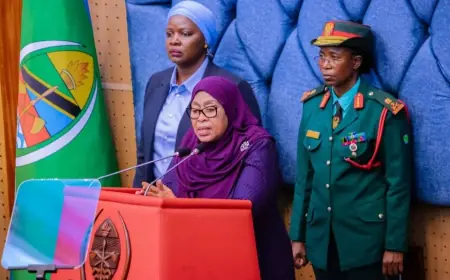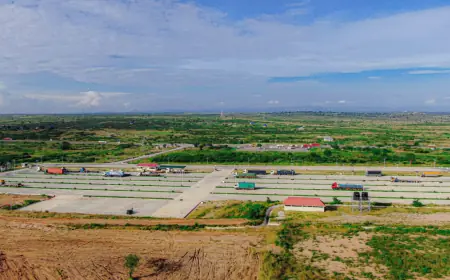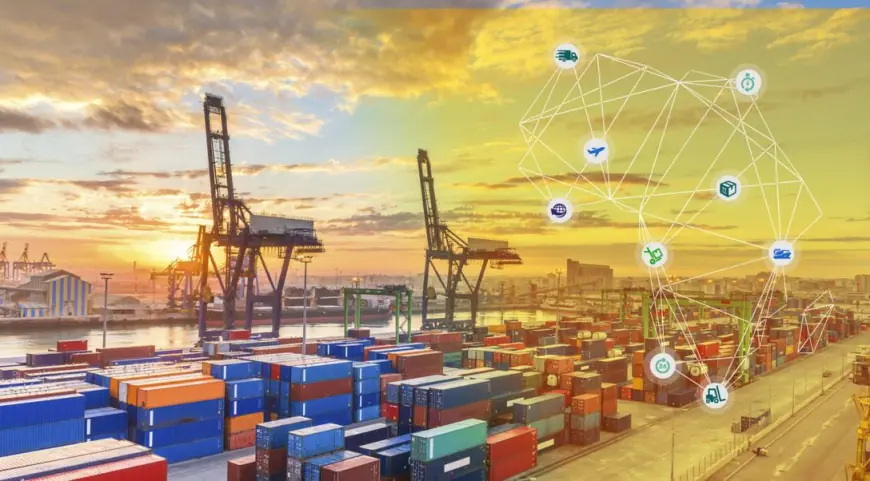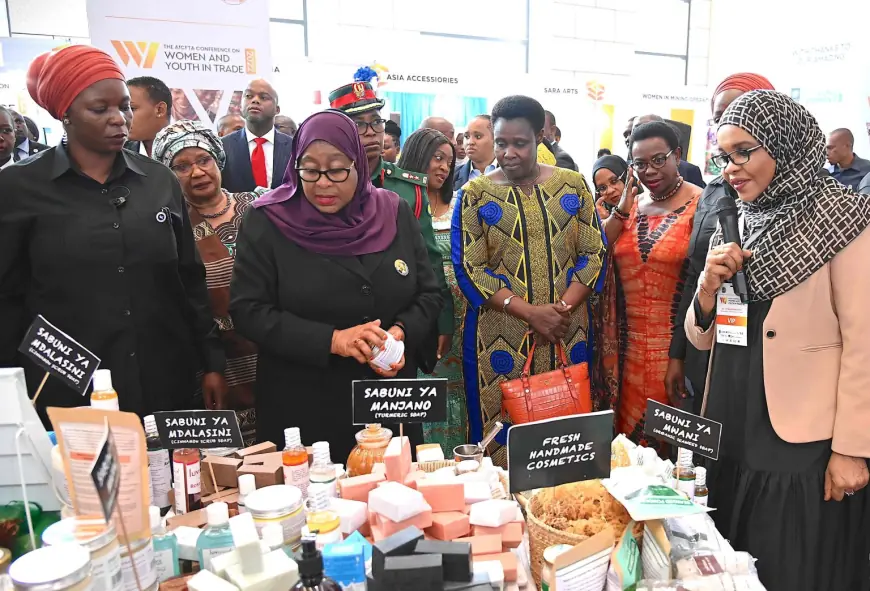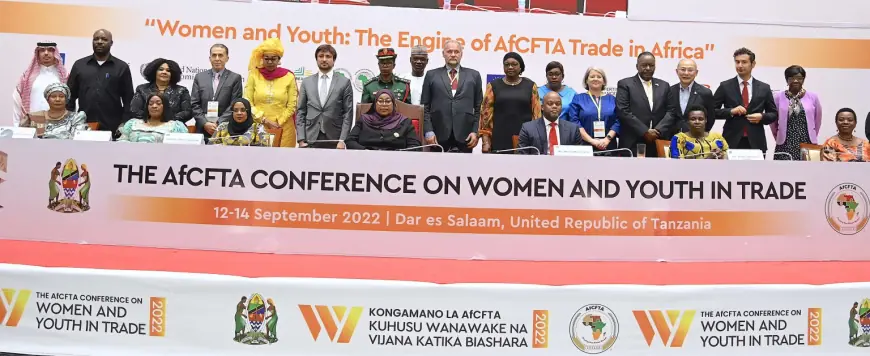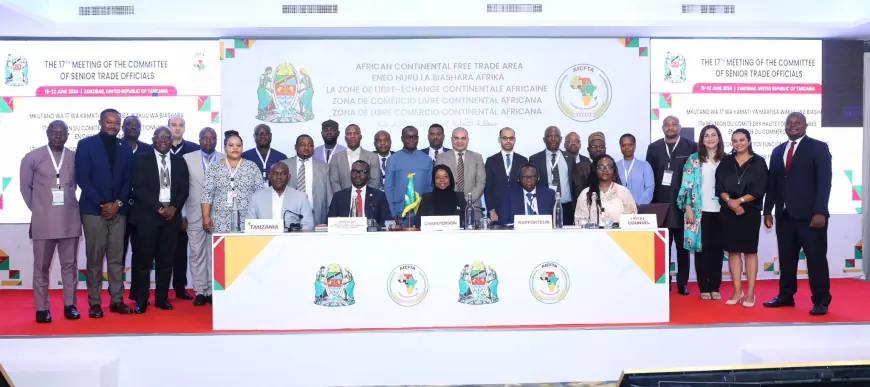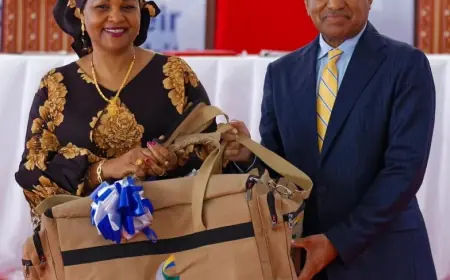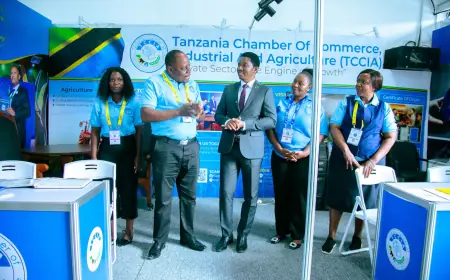Africa's next trade giant? Tanzania crafts AfCFTA implementation strategy
Tanzania has officially launched its 10-year National Strategy for the Implementation of the African Continental Free Trade Area (AfCFTA), a comprehensive roadmap designed to dramatically expand its export capacity and align its economic priorities with the continent's ambitious integration agenda
Dar es Salaam. Tanzania is positioning itself to become one of Africa's most competitive trade hubs and a prime destination for foreign direct investment (FDI), leveraging its strategic geographic location and significant infrastructure upgrades.
The government has officially launched its 10-year National Strategy for the Implementation of the African Continental Free Trade Area (AfCFTA), a comprehensive roadmap designed to dramatically expand its export capacity and align its economic priorities with the continent's ambitious integration agenda.
The strategy, unveiled on Thursday, July 24, 2025 by the Minister for Industry and Trade, Dr Selemani Jafo, in Dar es Salaam, marks a pivotal moment for a country aiming to tap into Africa's colossal market of over 1.4 billion people and a combined GDP exceeding $3.4 trillion.
"With the Standard Gauge Railway (SGR), modernised ports, and growing industrial parks, we are creating a robust ecosystem that will transform Tanzania into a regional trade and logistics hub," Dr Jafo declared.
Tanzania's vision extends beyond simply facilitating trade; it seeks to fundamentally reshape its economy.
The AfCFTA, a flagship project of the African Union’s Agenda 2063, aims to create a single continental market by dismantling tariffs and non-tariff barriers. Tanzania ratified the AfCFTA protocol in September 2021.
For Tanzania, this means an unprecedented opportunity for value addition, increased industrial competitiveness, and a significant boost in foreign exchange earnings and employment.
Strategic Investments Paving the Way
The bedrock of Tanzania's ambitions lies in its aggressive infrastructure development.
The ongoing construction of the SGR, a multi-billion-dollar project, is set to revolutionise connectivity, linking major economic centres within Tanzania and crucially, providing a vital artery to landlocked neighbouring countries such as Rwanda, Burundi, Uganda, DR Congo, Zambia, and Malawi.
This network, combined with significant upgrades to deep-water ports like Dar es Salaam, Tanga, and Mtwara, and the development of new dry ports such as Kwala, will drastically reduce the cost and time of doing business across the region.
The recent concession granted to Adani Ports for Container Terminal 2 at Dar es Salaam Port further underscores the commitment to enhancing port efficiency and capacity.
Furthermore, the proliferation of industrial parks and Special Economic Zones (SEZs) like the Kibaha Textile SEZ is designed to attract manufacturing investments, boost production, and facilitate exports, aligning with Tanzania's long-term goal of becoming a semi-industrialised economy by 2025.
These zones offer incentives such as corporate tax exemptions and duty-free access for capital goods and raw materials, making Tanzania an increasingly attractive proposition for investors looking to establish a manufacturing base to serve the broader African market.
Leveraging a Central Geographic Position
Tanzania's central geographic position on the East African coast is a natural advantage, making it a critical gateway for regional trade.
"Our continued investments in railways, airports, roads, and inland ports are crucial to connecting Tanzanian businesses to African markets," Deputy Minister for Transport, Mr David Kihenzile.
This strategic location, coupled with its membership in both the East African Community (EAC) and the Southern African Development Community (SADC), positions Tanzania as a unique nexus for trade across two significant regional blocs.
A Market Ripe for Investment
The AfCFTA strategy is meticulously aligned with Tanzania's broader development objectives, including its Vision 2025 and the Long-Term Perspective Plan 2011/12-2025/26, which prioritises industrialisation.
With over 40 Tanzanian companies already successfully exporting under AfCFTA provisions to diverse markets like Egypt, Nigeria, and Algeria, notably with products such as coffee and rice – the early successes are a testament to the potential.
The strategy identifies key priority sectors for growth, including agro-processing, textiles and apparel, pharmaceuticals, and logistics services.
These sectors are poised to benefit from enhanced export readiness, a streamlined business environment, and improved supply chains.
The East Africa Commercial and Logistics Centre (EACLC) in Dar es Salaam, a $110 million logistics hub, further reinforces the country's commitment to facilitating trade and attracting investment, with projections of creating over 15,000 formal jobs and substantial foreign exchange earnings.
Empowering the Youth and Ensuring Quality
The success of this ambitious plan hinges on broad-based participation.
Minister of State in the Prime Minister’s Office (Labour, Youth, Employment and Persons with Disabilities), Mr Ridhiwani Kikwete, said Tanzania's youthful labour force, which comprises 14 million of the country's 25.8 million workers is crucial in the international trade endevour.
"They must be empowered to contribute to this historic opportunity," he said, underlining the government's commitment to fostering youth-driven enterprise and innovation.
Crucially, quality and compliance are paramount.
The Tanzania Bureau of Standards (TBS) is actively engaging in harmonising standards at the continental level, with Director of Standards Development, Mr David Ndibalema, urging exporters to ensure products meet stringent benchmarks.
This focus on quality control and international standards will be vital in ensuring Tanzanian products are competitive and readily accepted across the AfCFTA market.
With continued support from development partners like the United Nations Development Programme (UNDP), which played a key role in the strategy’s formulation, Tanzania appears well-equipped to navigate the complexities and unlock the immense potential of the AfCFTA.
The next decade promises to be transformative for Tanzania as it strives to cement its position as a leading trade and investment hub in Africa, driving economic growth and creating prosperity for its citizens.
What's Your Reaction?
 Like
0
Like
0
 Dislike
0
Dislike
0
 Love
0
Love
0
 Funny
0
Funny
0
 Angry
0
Angry
0
 Sad
0
Sad
0
 Wow
0
Wow
0
